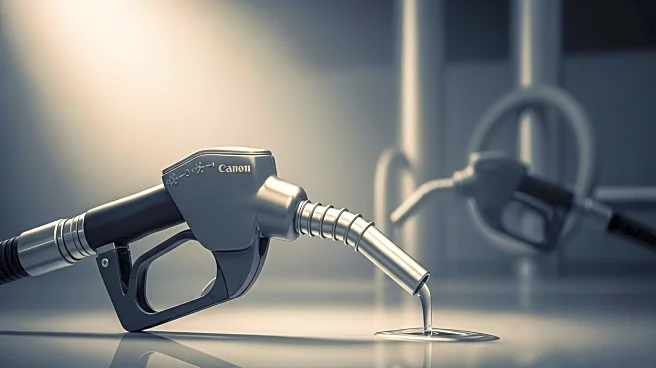What's Happening?
In the first half of 2025, U.S. imports of biodiesel and renewable diesel fell sharply due to changes in tax credits and lower domestic consumption. The loss of the $1 per gallon blender’s tax credit for imported biofuels, replaced by the Section 45Z Clean Fuel Production Credit, which applies only to domestic production, has made imports economically disadvantageous. Additionally, uncertainty around blending requirements and negative profit margins have led to reduced consumption of these fuels. As a result, domestic blenders are relying more on domestically produced biofuels, and international producers are finding fewer profitable opportunities to export to the U.S.
Why It's Important?
The decline in biodiesel and renewable diesel imports reflects significant shifts in U.S. energy policy and market dynamics. The change in tax credits impacts international trade and domestic production, influencing the renewable energy sector's growth and sustainability. Reduced imports may lead to increased reliance on domestic production, potentially boosting local industries but also challenging international suppliers. This situation underscores the importance of policy decisions in shaping energy markets and highlights the need for strategic planning to balance domestic interests with global trade relationships.
What's Next?
As the year progresses, U.S. consumption of biodiesel and renewable diesel is expected to increase to meet Renewable Fuel Standard mandates, although imports will likely remain low due to the tax policy change. The industry may see adjustments in production strategies and potential lobbying for policy revisions to address economic disadvantages faced by importers. Stakeholders will need to navigate these changes to optimize blending margins and ensure compliance with environmental standards.










